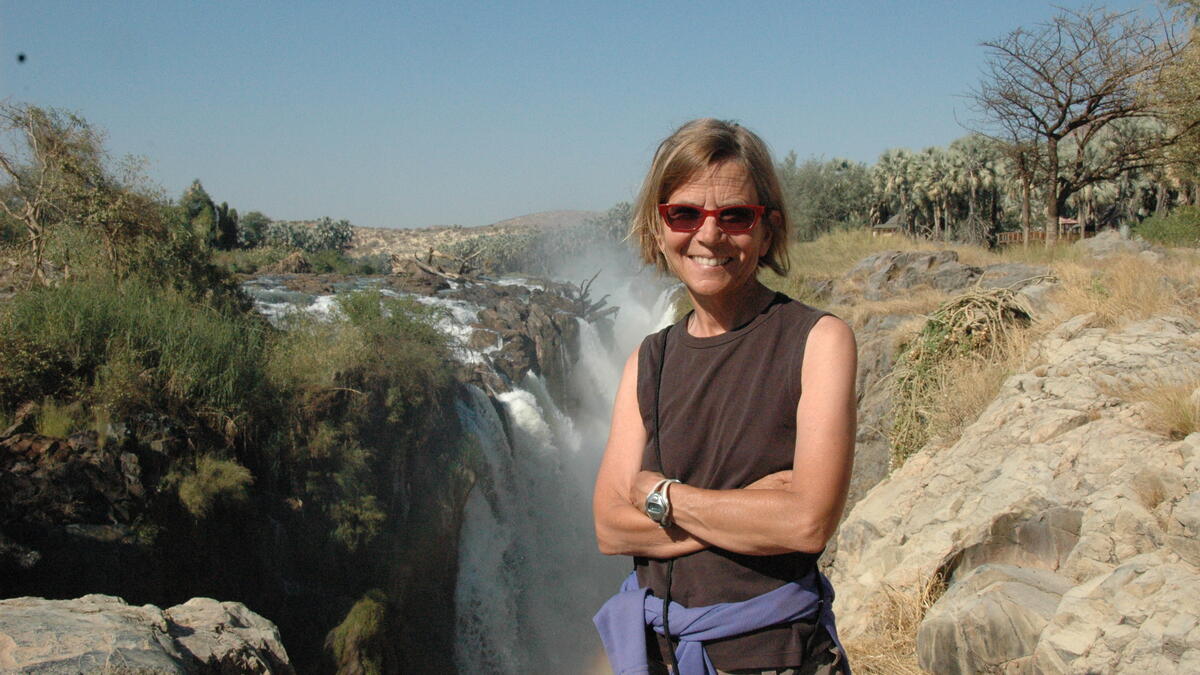AAAS honors ASU Regents Professor Joan Silk as a lifetime fellow

ASU Regents Professor Joan Silk. Image credit Joan Silk
The American Association for the Advancement of Science (AAAS), the world’s largest general scientific society and publisher of the Science family of journals, has elected Joan Silk from Arizona State University to the newest class of AAAS Fellows, among the most distinguished honors within the scientific community.
The 2021 class of AAAS Fellows includes 564 scientists, engineers and innovators spanning 24 scientific disciplines who are being recognized for their scientifically and socially distinguished achievements.
Silk, an ASU Regents Professor in the School of Human Evolution and Social Change and a research scientist with the Institute of Human Origins, is being honored for contributions to the field of primate social evolution, particularly using quantitative approaches to evaluate the adaptive value of social bonds for female primates.
Silk joined ASU in 2012 and, along with professors Robert Boyd and Kim Hill, founded the Adaptation, Behavior, Culture and Society research group at ASU.
Professor Silk is an internationally recognized leader in the study of primate and human behavioral evolution. Most of Silk’s research has focused on the relationships female baboons have with other females. Her findings show that those relationships are usually formed between relatives — often mothers and daughters — and that they serve an evolutionary purpose; baboons live stressful, unpredictable lives in which they are almost always on the lookout for predators, and even attacks from individuals in their own groups. But when females are able to form strong social bonds with one another, it reduces stress and positively impacts lifetime fitness and the number of surviving offspring they have.
Though Silk has spent time in the field, her work in the lab and as an educator has been especially fulfilling. Along with coauthor Boyd, Silk has published “How Humans Evolved,” now in its ninth edition. She loves to see her students get excited about evolution, even, and perhaps especially, when it is not their chosen field of study.
“My job is to surprise students with how interesting all of this is. Understanding the way evolution shapes behavior in nature is just intrinsically interesting. It’s like understanding how gravity works — it’s just basic, fundamental knowledge that helps you understand the world better,” Silk said.
Silk is a fellow of the American Academy of Arts and Sciences, the Animal Behavior Society and the American Anthropological Association.
The 2021 AAAS Fellows will receive an official certificate and a gold and blue rosette pin to commemorate their election (representing science and engineering, respectively) and will be celebrated later this year during an in-person gathering when it is feasible from a public health and safety perspective. The new class will also be featured in the AAAS News & Notes section of Science in January 2022.
More Science and technology

ASU postdoctoral researcher leads initiative to support graduate student mental health
Olivia Davis had firsthand experience with anxiety and OCD before she entered grad school. Then, during the pandemic and as a…

ASU graduate student researching interplay between family dynamics, ADHD
The symptoms of attention deficit hyperactivity disorder (ADHD) — which include daydreaming, making careless mistakes or taking…

Will this antibiotic work? ASU scientists develop rapid bacterial tests
Bacteria multiply at an astonishing rate, sometimes doubling in number in under four minutes. Imagine a doctor faced with a…